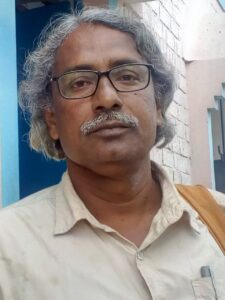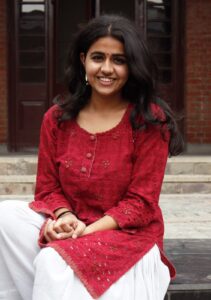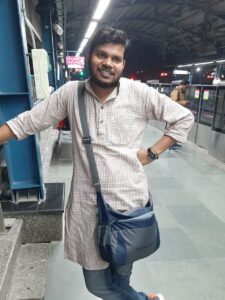Migration and Forced Migration Studies with Particular Focus on South Asia and its European-Asian Dimension (2019-2021)
MEDIA SEGMENTS
What Happened to Refugees and Migrants in the COVID Year of 2020?
A. Media Segment
As the prolonged lockdown which accompanied the COVID-19 pandemic brought the wheel of life to a standstill throughout the country, migrant workers encountered severe — even unspeakable — hardships. In 2020, the Media Workshop of the Calcutta Research Group (CRG) devoted itself to understanding this disheartening impact which the pandemic inflicted on the lives and livelihoods of migrant workers. While examining the precarious existence of migrant workers, the Workshop questioned whether their predicament was not aggravated by the absence of appropriate government interventions. Even the Supreme Court and a number of High Courts had demanded that the government take a more proactive role in ameliorating the condition of migrant workers affected by the pandemic and the restrictions which followed in its wake. Please click on the link to view the report on last year’s workshop.
In 2021, as the pandemic situation remains critical, it may be proper to revisit the precarity of migrant workers by widening the scope of the previous year’s study and focusing on the following themes:
a) The impact of the pandemic on the lives of the frontline COVID ‘warriors’ at village, panchayat, block and municipal levels. (e.g., ASHA workers, paramedics, nurses, doctors, etc.);
b) Initiatives of solidarity taken by various civil society organisations, local clubs, municipal councillors, small groups of people, private or government employees, political workers and humanitarian activists — their linkages and histories;
c) Dynamics of slum (bustee) level protection;
d) Situation of returnee migrants, their reception in native villages and towns, fear of migrant workers as carriers of the virus, migrant workers’ prospects of getting jobs on their return, their return to old jobs, responsibility of the state governments and local bodies, perception of the media about the returnee migrants, also the returnee migrants as an election issue;
e) The role of social media in the migrant crisis during the lockdown period;
f) The ‘data crisis’ around the migrant workers during the pandemic and the lockdown;
g) Court judgments and other legal aspects such as the efficacy of the Inter-State Migrant Workmen Act, 1979;
h) The rehabilitation of the Rohingya refugees;
i) Also, 2021 being the fiftieth anniversary of the Bangladesh refugee crisis, one may like to revisit the situation of the refugees in India in 1971, around issues of life in camps, disease, violence, politics, and the return of the refugees.
The Media Fellowship
CRG had announced, on the basis of this year’s topic for its media programme, a short-term media fellowship to provide an opportunity for selected individuals to do some creative assignments and reports on the subject. An expert committee tasked with the selection process has awarded five fellowships for 2021. The fellows will be required to write a creative report or produce a photo essay or documentary.
MEDIA FELLOWS
TOPICS
ABSTRACTS

Sukanta Sarkar, Ei Samay (Bengali daily from Times of India Group)
Graduated from University of Calcutta with Commerce. Done MA in Mass Mass Communication. Started practice of journalism in 1988 in the Bengali News weekly ‘Paribartan as a Political commentator. Worked in the ‘Frontier’ as reporter after close the ‘Paribartan’. Covered movement against Big Dam in the South Bihar which is now Jharkhand. Written features in ‘The Statesman’, ‘The Telegraph’, and local newspapers. In 1995 joined the ‘AsomiyaPratidin’ as Capital Correspondent at New Delhi. But just after one year joined the ‘AnandabazarPatrika’, where spent maximum time of professional life, 21 years. Currently associated with the EiSamay, a Bengali daily of the Times of India. Sarkar is also attached with the Department of Journalism and Mass Communication, University of Calcutta as a Guest Faculty. He authored a book on Four Dying Rivers in West Bengal (NODI-BANGLAR KATHA_KAHINI). Just started a work on Climate Refugees in the Sundarbans.
Migrant labourers in the sinking islands of the Sundarbans

Devika Singh Shekhawat, Ambedkar University,Delhi
Devika Singh Shekhawat is a writer, educator and researcher in the field of sociology. She is a published author with Zubaan Publications on the history and memory of migration of tea plantation workers of Assam and a co-author of a book chapter with the Programme of Social Action’s The Research Collective on the Ecological Crisis of Shrimp Aquaculture and discourses of migration and infiltration in Coastal Odisha. Having completed her bachelors from St. Stephens College, New Delhi she has completed her Masters in Sociology from Jawaharlal Nehru University, New Delhi and is currently pursuing her PhD from Ambedkar University Delhi on questions of work, health and labour in tea plantations of Assam. She has a keen interest in writing, teaching, curation and research work and her expertise lie in the field of gender and sexuality studies with a close emphasis on intersections of gender and labour, ecology, cultural studies, sociological theory, oral histories, folklore studies, migration, and developmental issues. She is currently working on questions of work, health, education and labour in tea plantations of Assam with special emphasis on understanding the dynamics of health governance, labour relations and the changing political economy of tea production in Assam.
Work, Health and Labour: ASHA Workers in Tea Plantations of Assam

Nivedita Manpoong (Nellie), Arunachal Times
A reporter and proofreader at The Arunachal Times, with over seven years of experience in journalism. Primary assignments have included covering current events, with focus on student welfare, political developments, and human interest. Extensively covered the Permanent Resident Certificate (PRC) riots in 2019 and reported on the anomalies in the state civil service examinations as well as the corruption in the state staff selection board examinations. Recipient of the Arunachal Pradesh State Gold Medal for contributions to the field of journalism in 2019. Winner of the V Ravindran Excellence in Journalism Award in the Politics and Governance category (2019) and Gender Issues category (2014) She has contributed a short story in the anthology, ‘The Inheritance of Words’, edited by Padma Shri Mamang Dai and published by Zubaan Books, 2021, and an essay titled ‘COVID-19 Pandemic: An assessment of Arunachal Pradesh’ in the book ‘COVID-19 Anguish, Resilience and Determination’, edited by Nabajit Deka, K Jose SVD and Bhaskar Das, and published by DVS Publishers, 2021.
Arunachal Pradesh’s response to migrant workers during COVID-19 lockdown: A case study in Itanagar

Aman (Siddhant) Gupta, News Click
Aman Gupta, working as Freelance Journalist. Covering stories for The Caravan, News Laundry, Media Vigil and Down to Earth etc. After completing my Diploma in Mass Communication from Indian Institute of Mass Communication, New Delhi and some desk jobs in media outlets, I decided to be on ground for reporting. Political reporting and Public Policies are my core interests in reporting.
Bundelkhand jaise elakon mein corona ke baad majdooron ki sthiti


